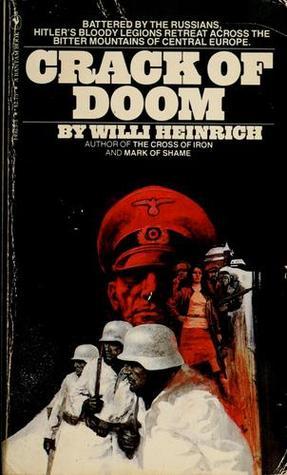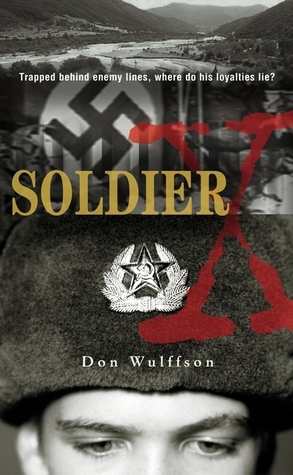
Crack of Doom
Book Description
Amidst the relentless chaos of World War II, a German soldier finds himself entangled in a web of loyalty and betrayal, where survival demands unspeakable choices. As the frontlines shift and the specter of death looms, the lines between friend and foe blur, igniting a fierce battle not only for life but for the very essence of humanity. Tension crackles like gunfire in every heart-stopping moment, and the haunting question of what one would do for love and honor lingers in the air. As darkness descends, will he rise above the flame or be consumed by the crack of doom?
Quick Book Summary
"Crack of Doom" by Willi Heinrich is a harrowing exploration of war’s impact on the human spirit, set amid the brutal landscape of World War II. The novel follows a German soldier whose journey across shifting frontlines forces him to confront agonizing decisions about loyalty, betrayal, and survival. Surrounded by the chaos and carnage of battle, the protagonist grapples with the ethical boundaries of right and wrong, all while the bonds between comrades and enemies become increasingly indistinct. As he endures loss and confronts the frailty of honor and love in a devastated world, readers are challenged to consider the price of survival and the lasting consequences of choices made in desperate circumstances. Heinrich delves deeply into the moral ambiguity of warfare, presenting a gripping narrative steeped in tension and humanity.
Summary of Key Ideas
Table of Contents
Moral Ambiguity in War
The novel introduces a German infantryman navigating the devastating Eastern and Western fronts of World War II. From the outset, the soldier’s world is defined by uncertainty, daily threats to life, and a brotherhood built on mutual dependence. Heinrich paints an immersive portrait of battle: not just the physical dangers, but the relentless mental strain. The protagonist’s relationships with comrades are central, as shared hardship forges bonds that are at once comforting and vulnerable to the pressures of war. Each skirmish and quiet moment deepens the gnawing sense that the line between friend and foe—humanity and inhumanity—is perilously thin.
Survival Versus Conscience
As the protagonist is swept deeper into the maelstrom of battle, survival becomes a daily negotiation. Orders from above often conflict with the practical realities in the foxholes, placing him in morally ambiguous situations. He faces choices that blur ethical boundaries: the betrayal of a fellow soldier to evade suspicion, or the theft of rations to stave off starvation. Loyalty and honor become costly, sometimes deadly, and the price paid for self-preservation erodes once-clear convictions. The chaos of collapsing frontlines mirrors the internal disintegration of the characters’ values, leaving the soldier in a constant battle with his conscience.
The Bonds and Betrayals of Brotherhood
Heinrich’s narrative meticulously dissects the psychological effects of war, particularly how constant exposure to violence corrodes innocence. The soldier, once hopeful and driven by ideals of duty and loyalty, is transformed by the atrocities he witnesses and the hard choices he must make. Comrades fall, sometimes as a result of betrayal or hard choices; the guilt and regret are enduring. War’s relentless grind is shown to reshape, and sometimes entirely destroy, the capacity for compassion. The protagonist’s struggle with his humanity is ongoing, as he attempts to cling to fragments of hope and love, even as loss mounts.
The Destruction of Innocence
The relationships in the novel—between comrades, superiors, and civilians—underscore the complexity of loyalty in wartime. Bonds forged in adversity nurture fleeting moments of solidarity and empathy, yet are frequently shattered by the demands of survival. Acts of betrayal, though understandable in context, reverberate with emotional and existential consequences. The protagonist’s internal conflict intensifies when personal attachments threaten his safety, testing the limits of trust and highlighting the isolating power of fear and desperation.
Choices and Consequences
By the novel’s harrowing end, the soldier stands at the brink of both physical and moral destruction. The titular "crack of doom" echoes the shattering of a soul under unspeakable stress. Heinrich leaves readers with a haunting question: what does it mean to survive if one loses their sense of self? The story is not one of clear heroes or villains, but of individuals ensnared by the vast machinery of war, each forced to reckon with the aftermath of their choices—both in the world they inhabit, and within themselves.
Download This Summary
Get a free PDF of this summary instantly — no email required.





